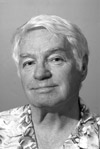Oval Office Antics and Achievements
BEST, WORST PRESIDENTS: With the nation having just observed Presidents Day, this seems like a good time to rate the best-and worst-U.S. chief executives. Alas, not all have been knights on white horses. “The plain fact is that more than half of our presidents have been mediocrities,” contends historian Robert Rutland. (Civics teachers: Think twice about showing this to your idealistic students.)

According to surveys and polls of historians and political scientists (this is a science?), during the past few decades, three presidents consistently have been rated our best:
George Washington, “father of our country”; Abraham Lincoln, who led the country through the Civil War; and Franklin D. Roosevelt, president during the Depression and World War II.
John F. Kennedy, Ronald Reagan, and Bill Clinton came into office with great gifts of charisma and public enthusiasm, but arguably fell short of their potential to inspire the nation to great heights to solve major public policy problems. Rankings of presidents rise and fall as the years pass, and no doubt the trio will see ups and downs in future surveys.
The cold glare of history can be cruel, and today’s beloved heroes too often become tomorrow’s second-raters, and vice versa. It’s usually a mistake to judge a president too soon after his leaving office, but as the song goes, fools rush in where angels fear to tread. George W. Bush has yet to finish his second term, but in early 2004, an informal survey of 415 historians conducted by the nonpartisan History News Network found that 81 percent considered the Bush administration a “failure.” The long hand of history has yet to mark against his name.
Belittled presidents can rise in esteem as the tide of history lifts their reputations. Harry S. Truman was ridiculed at the time as an uneducated farmer who never went to college and was a business bankrupt and product of the corrupt St. Louis political machine.
In reality, he was a man ahead of his time, a World War I combat officer who missed college because he was working off his father’s debts on the farm. His haberdashery failed due to a business recession of the time. Read David McCullough’s biography, Truman, for more. Truman, although from Jim Crow country, had the guts to integrate the Armed Forces.
But even the best face gets slings and arrows. Truman ordered the atomic bombing of Japanese cities, which ended World War II but is still criticized as inhumane and unnecessary.
Which brings us to the lowest-rated presidents. Ranked at the bottom of most polls are Warren G. Harding, who died in office (which ended his scandal-ridden administration), Franklin Pierce, and James Buchanan. The latter two are usually blamed for not doing enough to avert the Civil War.
Richard Nixon, not surprisingly, does not score high in the surveys. “There are presidents who could be considered both failures and great or near-great [for example, Nixon],” said historian Alan Brinkley. “How,” asked presidential biographer James MacGregor Burns, “can one evaluate such an idiosyncratic president, so brilliant and so morally lacking?”
The leading three presidents-Washington, Lincoln, and FDR-are followed in most polls by Thomas Jefferson, Theodore Roosevelt, Truman, Dwight Eisenhower, Kennedy, and Andrew Jackson.
Historians have also observed that the presidency is a tough job. Only one president in each century has been crowned with the scholars’ mantle of greatness: Washington in the 18th, Lincoln in the 19th, and FDR in the 20th. Not all presidents were saints. Harding, who took office in 1921, was immensely popular, although Democratic leader William Gibbs McAdoo called his speeches “an army of pompous phrases moving across the landscape in search of an idea.” Harding reportedly carried on two illicit affairs, one with Nan Britton, who claimed they conceived a daughter in his Senate office, then continued the affair using a White House closet. He died in office in 1923.
Decades before FDR was elected to the highest office in the land, his wife, Eleanor, discovered that he had been carrying on a love affair. She confronted him and offered him a divorce.
Since that would have dashed young Roosevelt’s political hopes, and because his wealthy mother threatened to cut him off financially, Roosevelt agreed to end the affair.
From then on, they were married in name only and slept in separate rooms, but formed a powerful domestic partnership. Eleanor became one of the most active First Ladies, an outspoken advocate for social progress and perhaps the greatest American woman of the 20th century. Roosevelt, who became wheelchair-bound with polio, remained friends with his former lover, Lucy Mercer. She was with him when he died in 1945. Only then, to her shock, did Eleanor learn of the continuing friendship, a closely guarded secret among family and staff.



